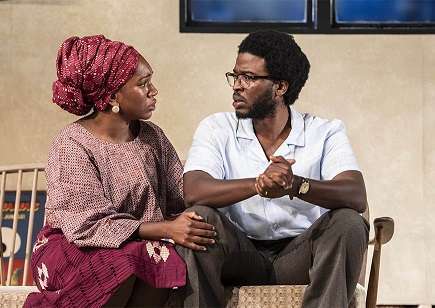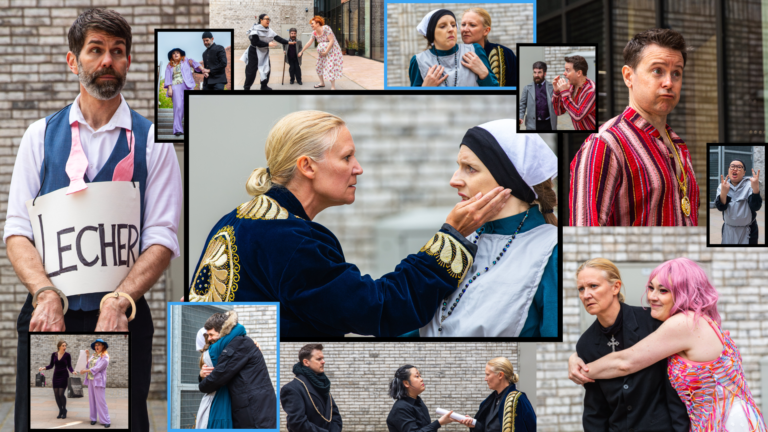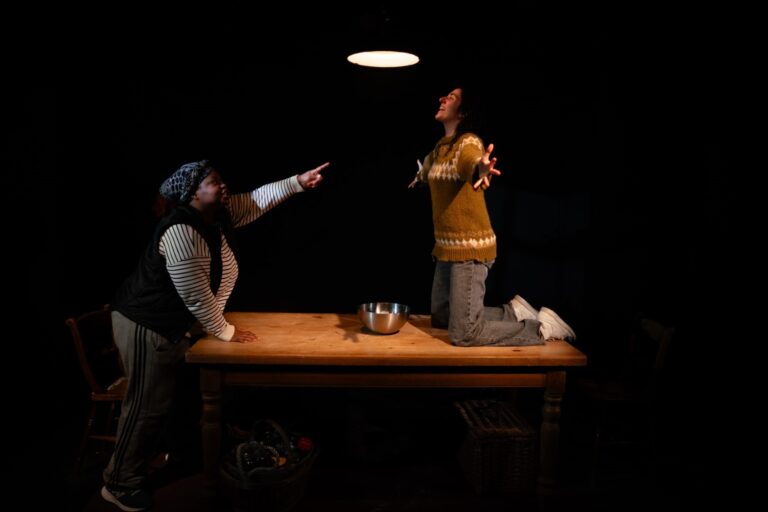Kwame Kwei-Armah’s play, ‘Beneatha’s Place’, inspired by the modern classic ‘A Raisin in the Sun’ and written as a response to ‘Clybourne Park’, is an intensely powerful satire that explores the complexities of both race and relationships, writes Bella Christy.
Written and first performed in 2013, this new production reacts to the culture wars ongoing in Britain and the United States. Kwei-Armah discusses how his play addresses the closing down of Black and African studies, the perception that the subject has lost its position as progressive, as well as the fatigue experienced by some in the back community regarding issues around race.
Act one and two are vastly different. The first, sees Beneatha (Cherrelle Skeete) and her husband Joseph (Zackary Momoh) moving into their new home in Lagos, Nigeria in 1959. With a backdrop of political unrest and the escalating violence for independence, this act brings dramatic action in a series of intimate scenes. The shifts of energy in this act are incredible, captivating the audience as the characters navigate their emotions. They transition both seamlessly and jarringly from moments of love and security to moments of sombreness and anxiety, from laughter and dancing to mania and grief. Each shift surprising and deeply evocative.
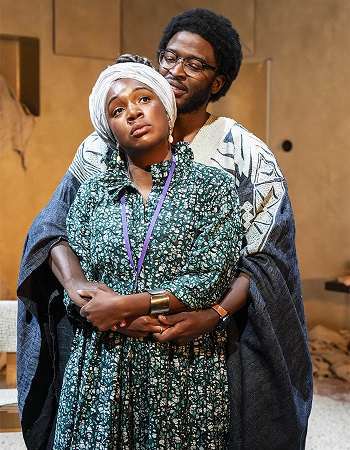
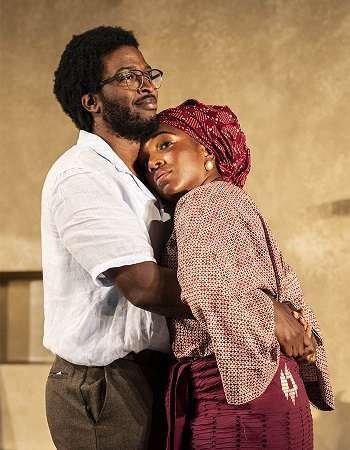
The relationship between Beneatha and Joseph is one full of love, and I feel their connection immediately. Often times romance grows on you throughout the course of a play, but in this case, the chemistry on stage felt so authentic as I relaxed into their portrayal of marriage. This sense of ease, however, is short-lived.
While the main concern of the play is race, gender cannot be overlooked. The dynamics between Beneatha and Joseph depict a traditional patriarchal relationship. In a pivotal moment, Joseph shouts ’I am your husband and you will listen to me’, stunning both Beneatha and the audience. Yet despite the prevailing patriarchal norms, Beneatha, a woman studying medicine, demonstrates a progressive mindset that surpasses expectations of women at the time.
50 or so years later, Beneatha, now a Dean at an Ivy League University, returns to her house in Nigeria for what unfolds to be an intense and argumentative faculty meeting. The same cast returns, multi-rolling as professors, each character so unique and skilfully constructed, there was nothing lacking as the actors’ talents were showcased, their characters completely in contrast with their earlier portrayals.
I found Act 2 to be surprisingly witty, which was paired and juxtaposed with the weighty discussions about the place and significance of Black and African studies. It was a profound experience to be laughing one moment and in the next deeply reflecting on my perspective on race.
The one long scene grappled with notions such as white privilege, Black experience, racial quotas, power and guilt. I was particularly captivated by the anecdote of ‘straight white male’ being described as the lowest difficulty setting of life. What is more is that the audience felt part of the conversation occurring onstage: shock, laughter, agreement and discord rippled through the theatre as a way of people sharing their own opinions.
I think this was a brilliant play and production, the best I have seen in a while. I would certainly recommend going to The Young Vic and watching Beneatha’s Place.
Young Vic, The Cut, SE1 until August 5th. Times: Mon – Sat, 7.30pm; Wed & Sat matinees, 2.30pm.
Booking: www.youngvic.org


